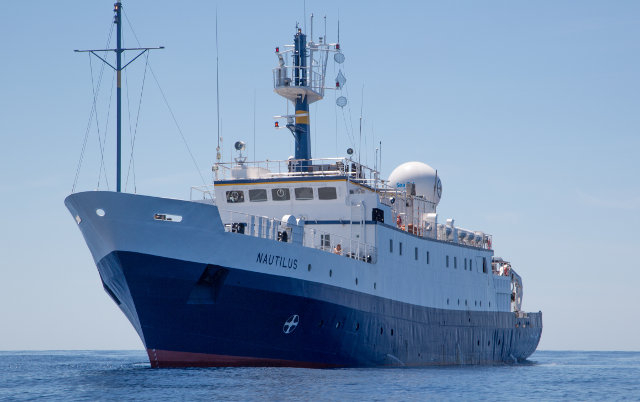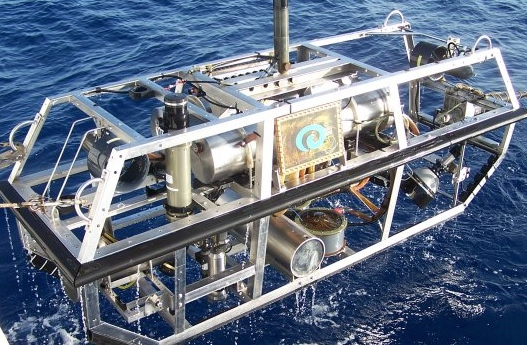
Scientists Try for 1st-Ever Meteorite Recovery at Sea

On March 7 of this year, a bright meteorite (called a bolide) fall was observed about 15 miles (25 kilometers) off the coast of Grays Harbor County, Washington.
Ocean Exploration Trust is working with scientists from Olympic Coast National Marine Sanctuary, NASA and the University of Washington to locate the meteorite fall. You can follow their mission live here: http://www.nautiluslive.org.
The Exploration Vessel Nautilus mapped a 0.4 square mile (1 square kilometer) patch of ocean, which is being searched by remotely operated underwater vehicles, called Hercules and Argus. If these robotic submarines find anything, it will be big news — the first known recovery of a meteorite from the ocean.
One dive occurred yesterday (July 2), from approximately 12 p.m. to 7 p.m. EDT (1600 to 2300 GMT; 9 a.m. to 4 p.m. local Washington time), mission team members said in an update. You can learn more about the meteorite hunt, which runs through Wednesday (July 4), in this video.
An analysis by NASA Cosmic Dust Curator Marc Fries, who is aboard Nautilus for the expedition, indicates that this fall contained about two tons of meteorites. Fries estimates that, at the fall site for the largest meteorite, there may be two to three meteorites for every 110 square feet (10 square meters) of seafloor.

Support for this expedition comes from the National Oceanic and Atmospheric Administration's Office of Ocean Exploration and Research, the Ocean Exploration Trust and the National Geographic Society.
Leonard David is author of "Mars: Our Future on the Red Planet," published by National Geographic. The book is a companion to the National Geographic Channel series "Mars." A longtime writer for Space.com, David has been reporting on the space industry for more than five decades. Follow us @Spacedotcom, Facebook or Google+. This version of the story published on Space.com.
Get the Space.com Newsletter
Breaking space news, the latest updates on rocket launches, skywatching events and more!
Join our Space Forums to keep talking space on the latest missions, night sky and more! And if you have a news tip, correction or comment, let us know at: community@space.com.

Leonard David is an award-winning space journalist who has been reporting on space activities for more than 50 years. Currently writing as Space.com's Space Insider Columnist among his other projects, Leonard has authored numerous books on space exploration, Mars missions and more, with his latest being "Moon Rush: The New Space Race" published in 2019 by National Geographic. He also wrote "Mars: Our Future on the Red Planet" released in 2016 by National Geographic. Leonard has served as a correspondent for SpaceNews, Scientific American and Aerospace America for the AIAA. He has received many awards, including the first Ordway Award for Sustained Excellence in Spaceflight History in 2015 at the AAS Wernher von Braun Memorial Symposium. You can find out Leonard's latest project at his website and on Twitter.









